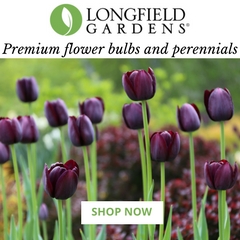This week, “local” means everything up and down the West Coast, from B.C. to Seattle, to California botanicals
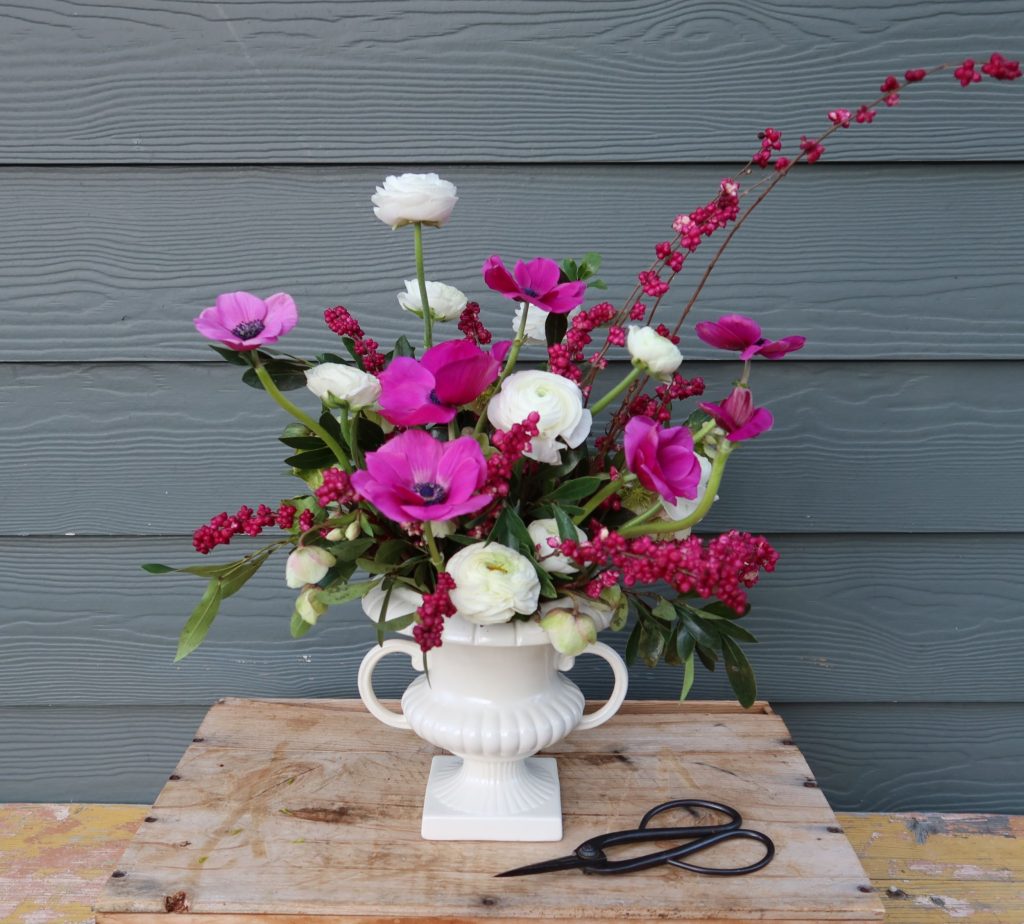
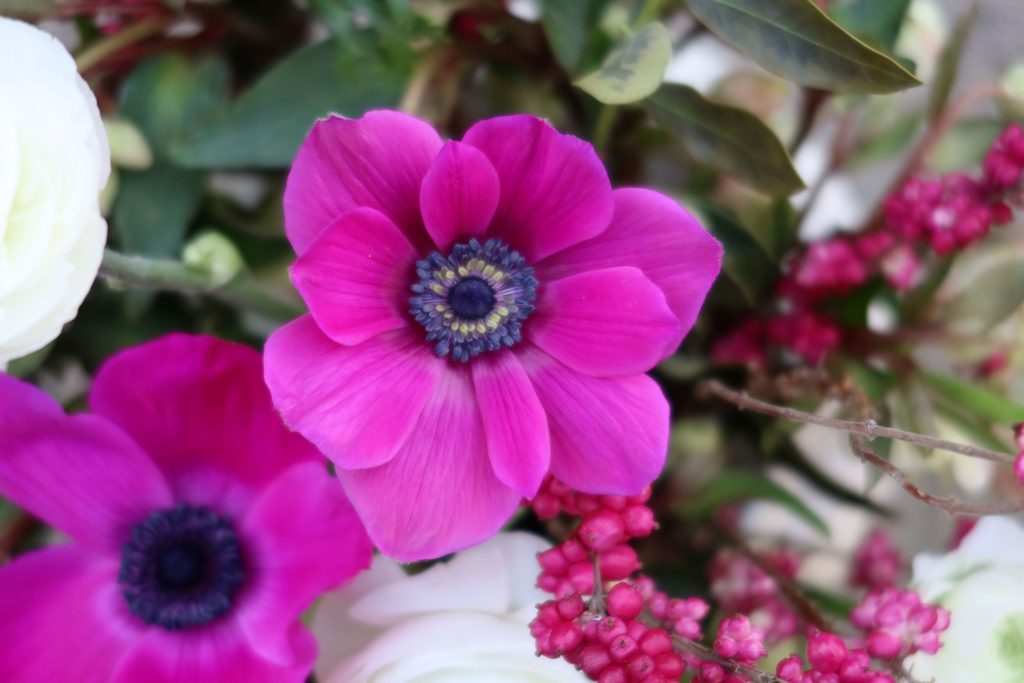
The start of the New Year has been a slog for me, thanks to an unexpected bout of COVID (thankfully the Paxlovid prescription worked), so I feel a bit behind. As of Friday, testing negative, I set off for some errands. A stop at the Seattle Wholesale Growers Market was imperative. I was in need of floral therapy! Temperatures have dropped to the low 20s here in the Pacific Northwest, and the garden is shivering and folding into itself to stay warm. That’s all the more reason why I wanted to bring home some botanical medicine!
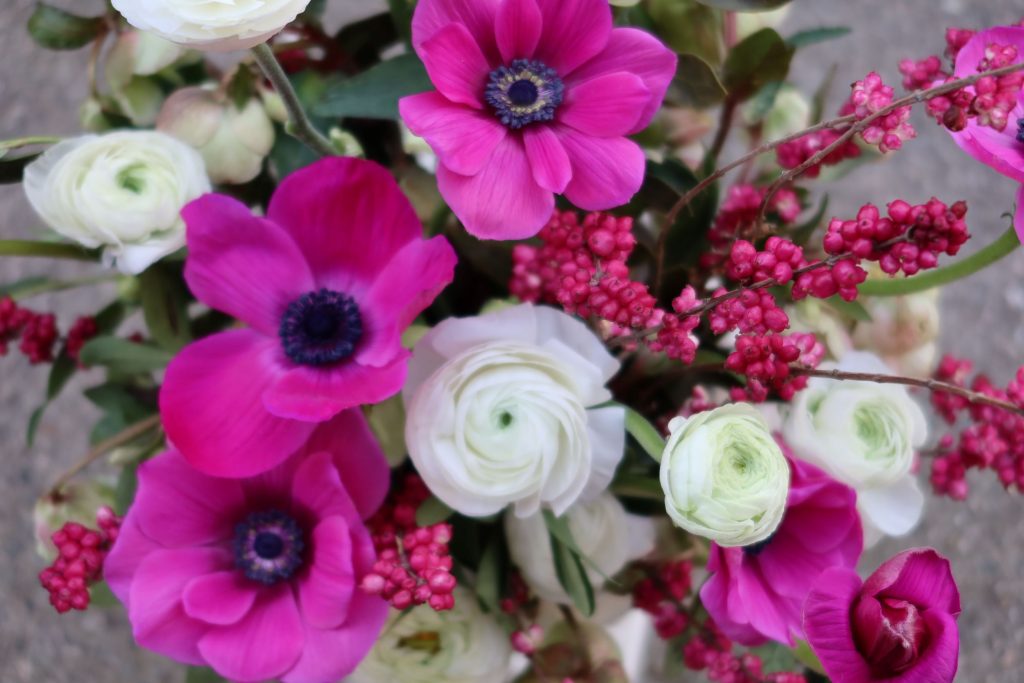
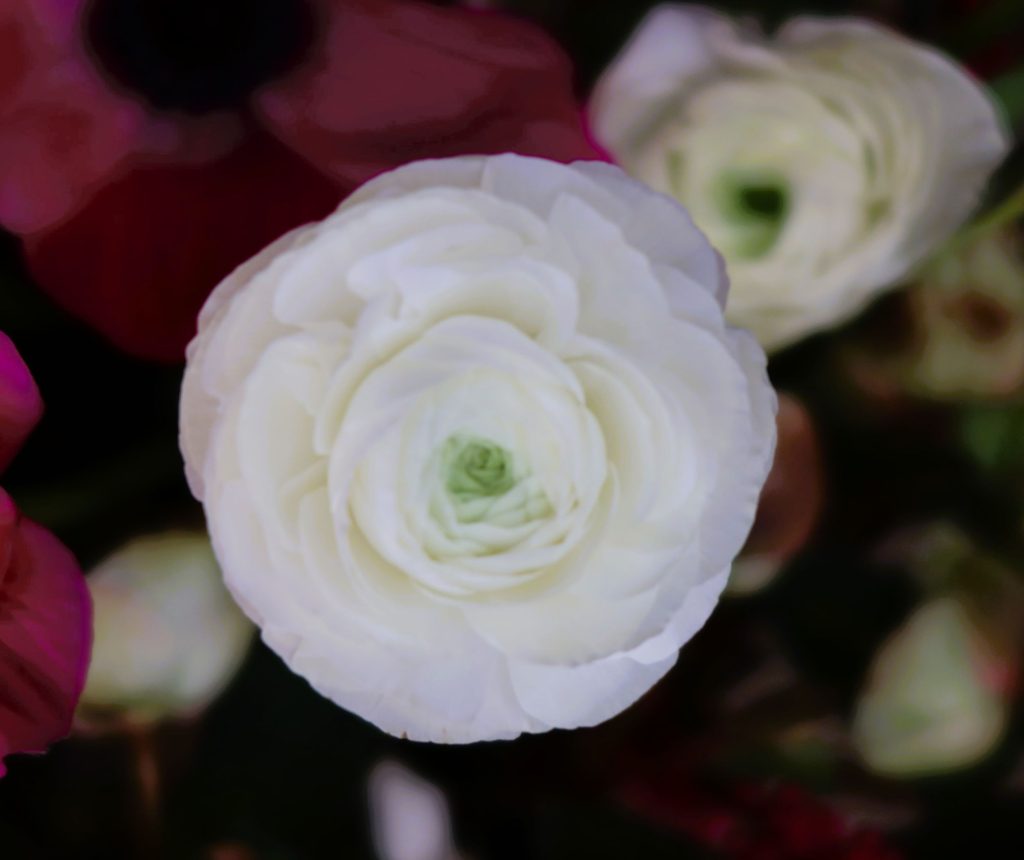
This week, anemones, ranunculus, hyacinth, tulips, and a few other early spring blooms — all from California growers — brought color to the market floor. I grabbed snow white ranunculus and fuchsia anemones, along with a bunch of single white-green garden hellebores, from British Columbia growers. The only truly local element came from Jello Mold Farm’s magenta pink ‘Hancock’ snowberry — it pairs perfectly with the anemones!
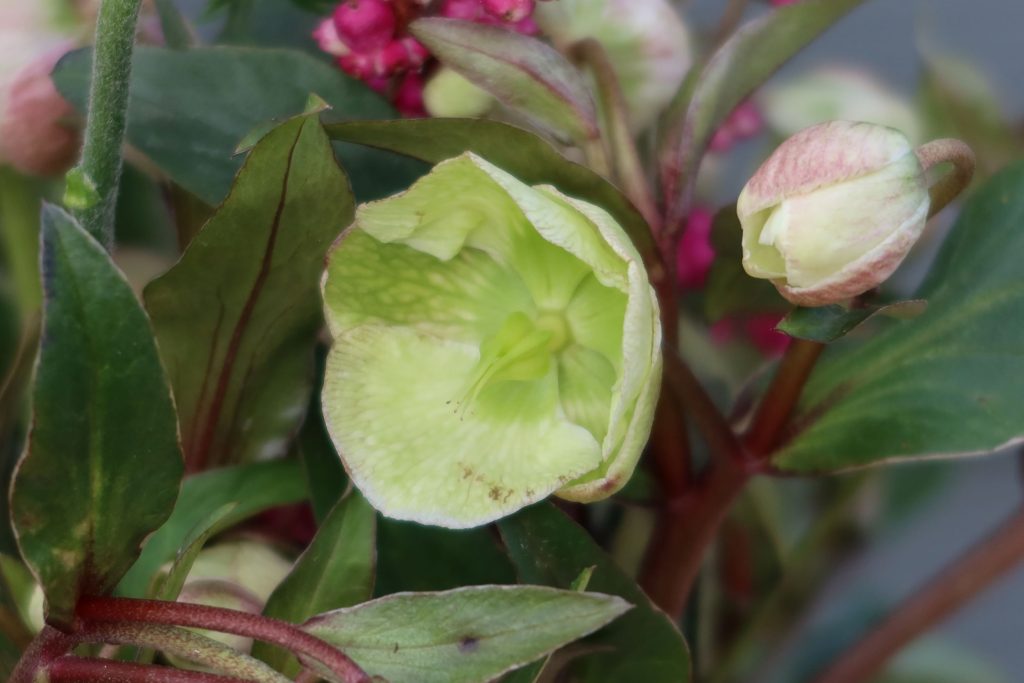
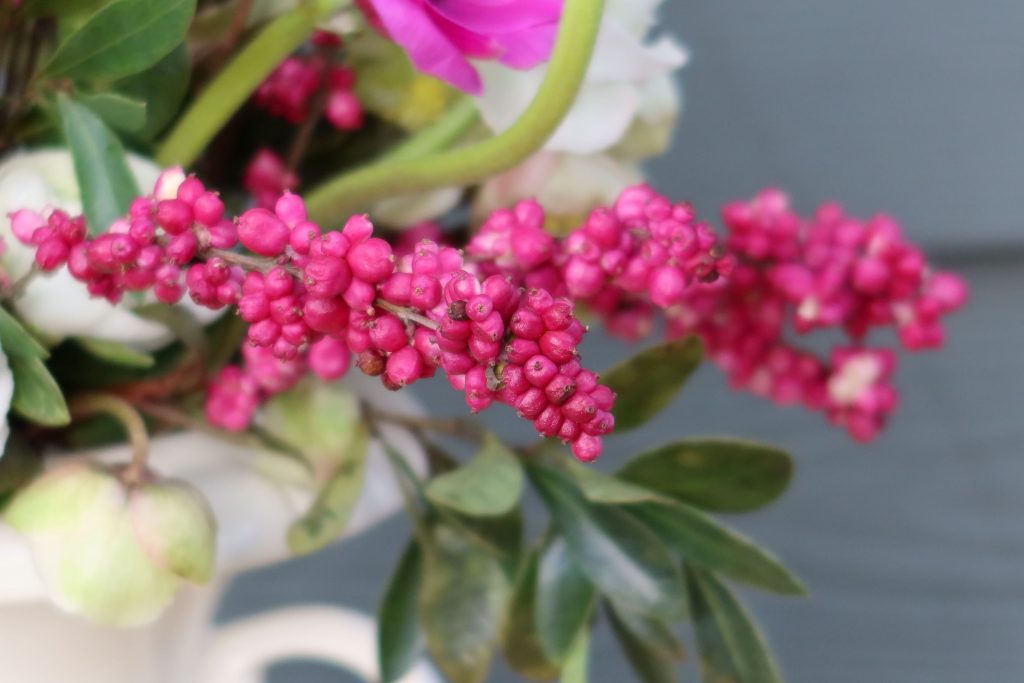
I did need some greenery, and clipped sprigs from Distylium ‘Coppertone’, a low-spreading evergreen shrub in the front garden, also called evergreen witchhazel. I really love the leaves’ olive-like form, and they have a nice blueish undertone.
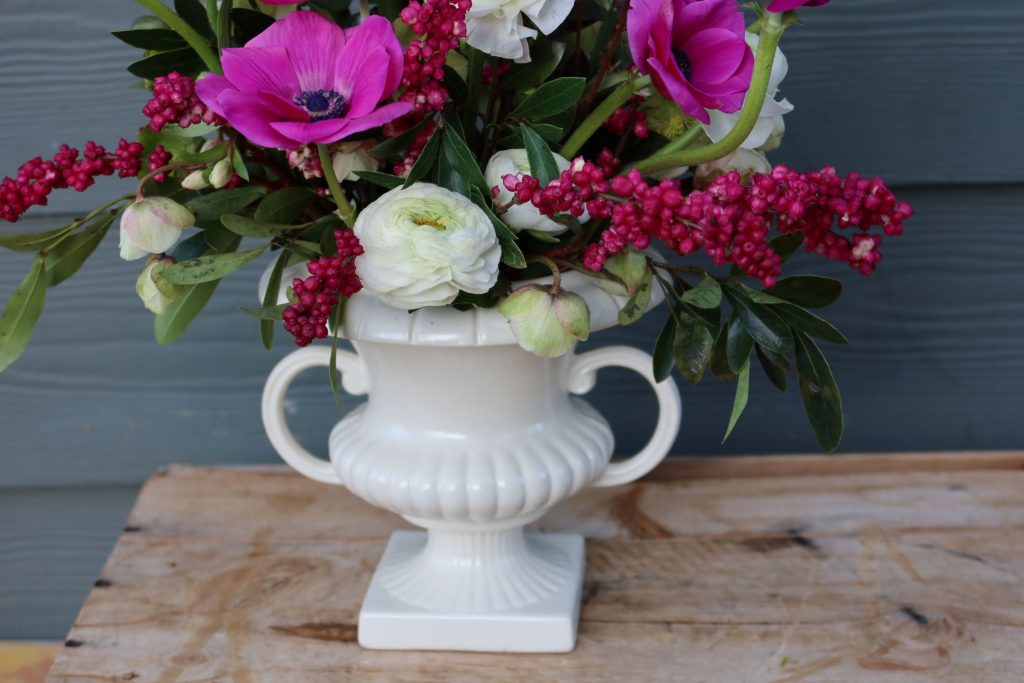
My vessel is a vintage creamware vase with an urnlike shape and two graceful handles. It was a gift from my friend Nancy Finnerty, who bequeathed me her entire collection of cream pottery when she moved to a studio in Manhattan and no longer had space for the pieces. I love each and every one, and cherish them because of my friendship with Nancy. She has an artist’s eye and gathered the vases over the years. I used to love looking at them, clustered high and low, round and slender, a little compendium of American craftsmanship, that populated the fireplace mantel in Nancy’s former bunglow in Seattle. Happy to give them a new home and to often fill them with flowers!
Read More: See my post about the entire Nancy Finnerty pottery collection

